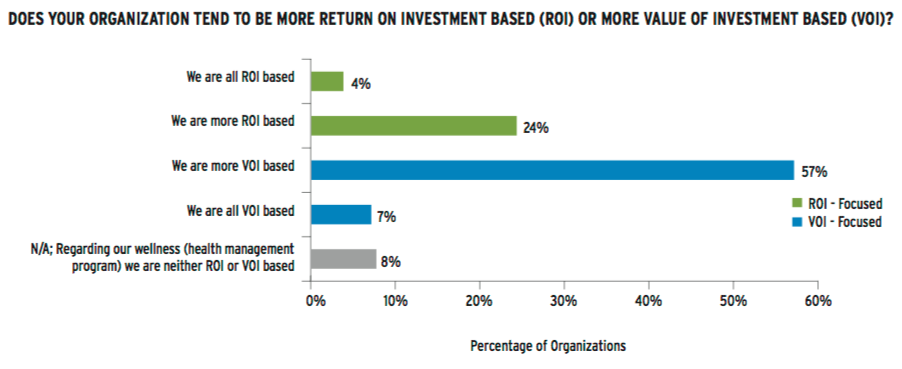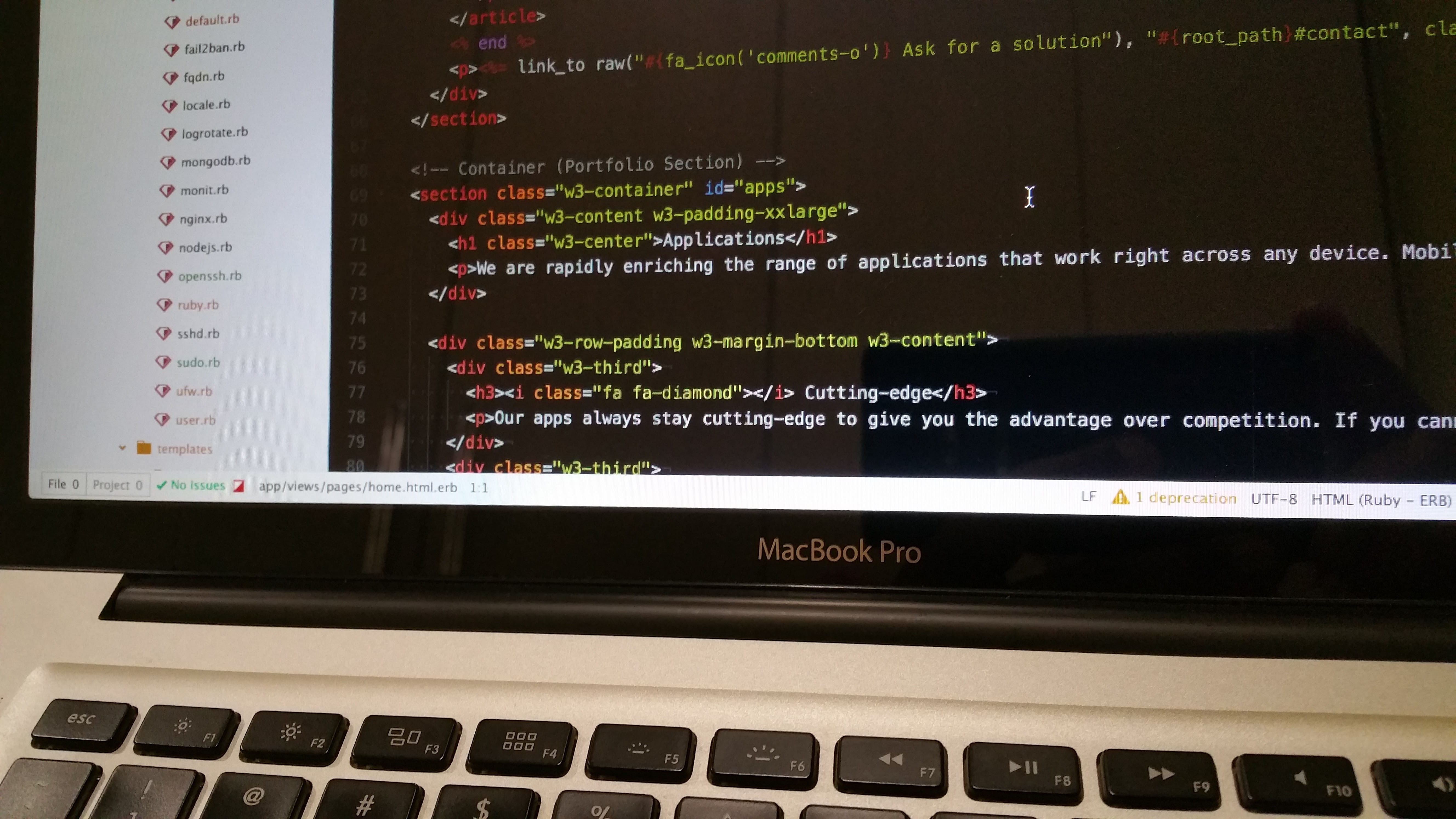Transparency is extremely important to us, so we are letting you know that we may receive a commission on some of links you click on from this page. See our disclaimer.
Are businesses moving away from demanding strict and immediate Return on Investment (ROI) measurements when evaluating their workplace wellness programs?
ROI certainly hasn't disappeared completely, but according to the Willis Health and Productivity Survey Report (2015), the emphasis may be shifting.
The report notes: “More organizations are realizing that the expectation of an immediate ROI for their wellness programs through medical cost reduction is unlikely. Worksite wellness requires a sustained effort, including annual program review and long-term program management. Companies who adopt a true culture of health better position themselves for increased pro tability in the long run.”
 So where is the focus — and how are companies that evolve from ROI measuring success?
So where is the focus — and how are companies that evolve from ROI measuring success?
The report adds that “more organizations are increasingly focusing on the value of investment (VOI) of health management and wellness programs. Employers are recognizing that there is considerable value to a healthier workforce beyond the value of lower medical costs. VOI-focused organizations embrace a wider set of metrics that include: absenteeism, worker morale, employee turnover, presenteeism costs, workers compensation, short- and long-term disability, employee loyalty and tenure.”
The authors note that “the focus on ROI, however, isn’t going away.” Given health care costs generally, companies still need and want to know how investments affect costs.
Other key insights from the report:
- “Sixty-four (64%) of the survey respondents with wellness programs were VOI-focused versus 28% of respondents were ROI-focused.”
- “Organizations with a Value of Investment (VOI) focus tended to be more satisfied with the impact of their programs.”
- “Respondents valued “building a culture of health” over “targeting specific risks” and valued “targeting specific risks” over ‘shifting costs.'”
- “Organizations with a VOI focus were more likely to value “building a culture of health” (66%) than organizations with an ROI focus (51%).”
- “Respondents from employer organizations with a VOI focus were more likely to be concerned about improving productivity with their health management programs (51%) than respondents from organizations with an ROI focus (40%).”
- “Organizations with a VOI focus were more likely to value building teamwork and morale (48%) than organizations with an ROI focus (25%).”
- “Respondents from organizations with an ROI focus were more likely to be interested in targeting high risk and high cost claimants with their health management programs (57%) than respondents from organizations with a VOI focus (41%).”




0 Comments